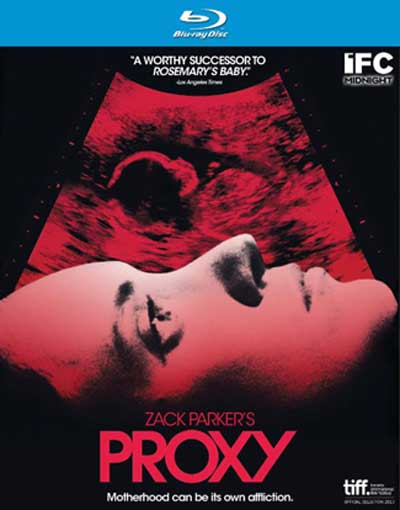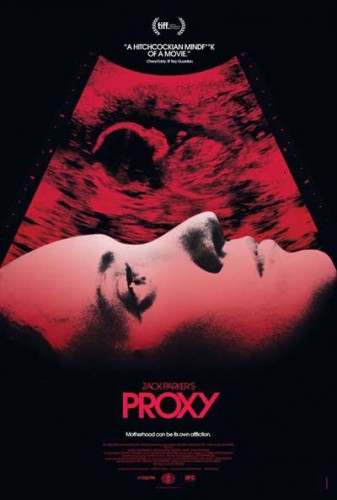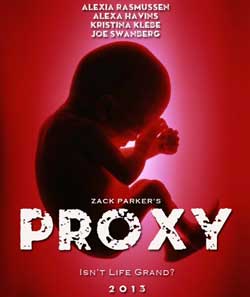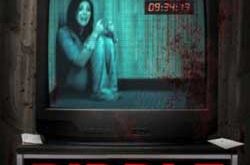The life of three parents who have all shared the loss of a child. Motives are not what they seem and sanity is in short supply in this thriller.
REVIEW:
One can only imagine the harrowing level of grief inflicted by the death of a child. Morbidly, this tragic real life horror has historically served as fertile stomping grounds for motion picture melancholy. Dramatic pieces have delved headlong into the deteriorating psyches of mourning parents and loved ones, often feeling like emotional punishment. I’ll still never forgive Atom Egoyan for making me bawl for two straight hours with “The Sweet Hereafter.”
Genre pictures tend to utilize the scenario for a jumping off point, as artfully (and P*rnographically) displayed in Lars von Trier’s “Antichrist.” Another fine example is the taut Aussie thriller from 1988, “Dead Calm.” Both knock us over the heads straight out of the gate with heartbreak, the survivors’ latter actions and attitudes greatly affected (for the better or in the case of “Antichrist,” the much worse) once faced with the film’s central conflict.
And then there’s “Proxy.” Writer/director Zack Parker, whose mindbender “Scalene” was a festival darling a few years back, has concocted a challenging, at times frustrating little c**ktail with his latest. At the core a story of loss, it meanders at a dogged pace through a series of strange and disorientating tonal shifts, offering a handful of blandly insane individuals who grow uglier as it progresses. It’s a slow yet sporadically fascinating opus.
Like the aforementioned films, we begin with a “Holy shit!” moment. Esther (Alexia Rasmussen, “Our Idiot Brother”), nine months pregnant and due in days, is attacked in an alley on her walk back from an OB/GYN appointment. The perpetrator knocks her unconscious with a brick, and proceeds to violently beat her distended stomach with it. This leads to one of the more shocking visuals I’ve witnessed in quite a spell, as attending doctors are forced to perform an emergency C-section.
Having no one else in her solitary life to turn to and on the advice of the resident counselor, Esther attends a group therapy session for grieving mothers. There she meets gregarious charmer Melanie, portrayed by Alexa Havins of TV’s “Torchwood.” Having lost her son Peyton and husband Pat to a drunk driver, she immediately takes the haunted young woman under her wing. Esther is reluctant to speak of the recent brutality, but Melanie is more than willing to pour her anguished heart out to this stranger over afternoon coffee.
While at the mall a few days later, Esther makes a discovery that skews “Proxy” for the first of many times. She follows a frantic Melanie as she searches for Peyton, who we quickly learn is not only very much alive, but isn’t even lost within the store and left alone in her car. Esther plays along at their next encounter, allowing Melanie her lies without divulging what she’d witnessed.
The arrival of Esther’s aggressive lover Anika (Kristina Klebe of Zombie’s “Halloween” and “Alter Egos”) brings another revelation that is delivered with such subtlety during post-coital conversation, someone not paying strict attention to the seemingly banal banter could miss it altogether. Also making a belated appearance is the not-remotely-dead-either hubby Pat, played by Joe Swanberg from “The Sacrament.”
To continue further into the serpentine plot would pay the largest disservice to “Proxy,” as it relies so heavily upon surprise. At nearly exactly the halfway mark comes the boldest narrative slight-of-hand, in a scene that had yours truly fooled into thinking it a dream sequence. It’s a brilliant move, one that would make Hitchcock proud, and cements a palpable sense of unease into its framework through the latter, weaker half.
Motivations, which were less than clear before, blur further into “no reason” land when a standard revenge story takes the stage. Melanie’s home life is also placed under the microscope, as a suspicious Dan investigates into his wife’s secret obsession with death. These scenes between the couple are overlong to a fault, and Parker’s indulgence threatens to sink the enterprise. The stalker angle also approaches tedium in spots, never living up to the enormous leap of faith required to buy into this progression in the first place.
Though no one aside from a couple of awful supporting actors stands out as exceptionally bad in the cast, it’s obvious that the four leads struggle with the unpredictable actions of their roles. Rasmussen, channeling Angela Bettis from “May,” fares the best, infusing Esther with the same sympathetic air of doom. Havins is given the widest gamut of emotions, but unfortunately it comes devoid of any accompanying insight into Melanie or her unique form of Münchausen syndrome. As Pat, Swanberg is afforded a few lovely moments once he finally gets out of the house, but spends most of the film in a stunned haze. Veteran horror performer Klebe is right at home as the underwritten Anika, adapting a low-rent Lisbeth Salander persona minus the body piercings.
Parker once again proves himself a rising auteur, and his painstaking attention to detail is evident here. Drawing inspiration from both the hypothetically impressed Hitch and direct cinematic descendent Brian De Palma, his framing is beyond exceptional. However, there are many opportunities for tightening in both script (co-written by Kevin Donner) and presentation that are abandoned in favor of artistic frivolity. At just over two hours, “Proxy” would have been a corker of a 100-minute film.
One of the few that has compelled me to view it a second time before drawing conclusions, “Proxy” is a movie that perplexes when it should be gripping, never quite plumbing the batshit depths of crazy on display as it could have. For those who yearn for something different, it certainly qualifies. Who knows? It may be just weird enough to delight you.
 Horror News | HNN Official Site | Horror Movies,Trailers, Reviews
Horror News | HNN Official Site | Horror Movies,Trailers, Reviews











